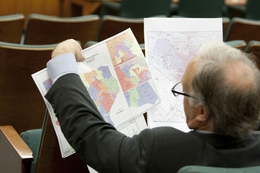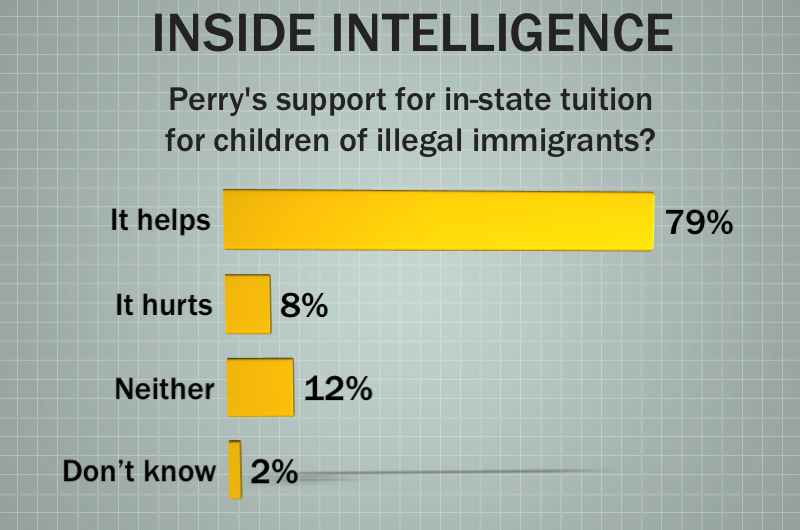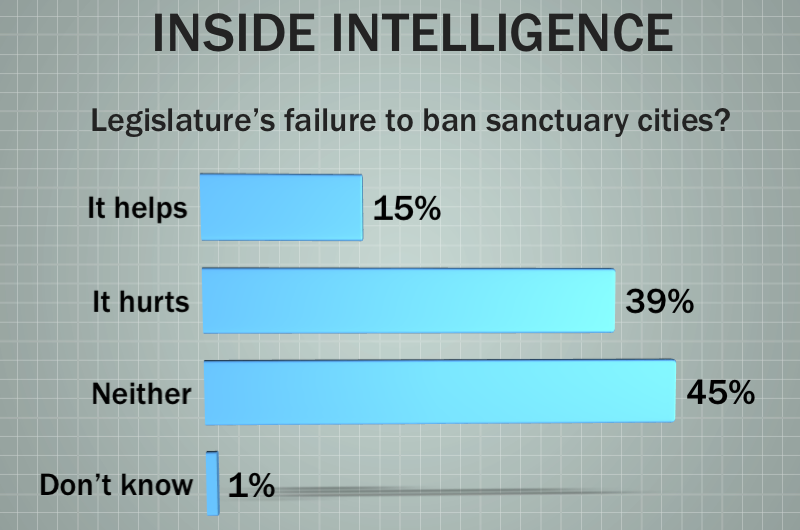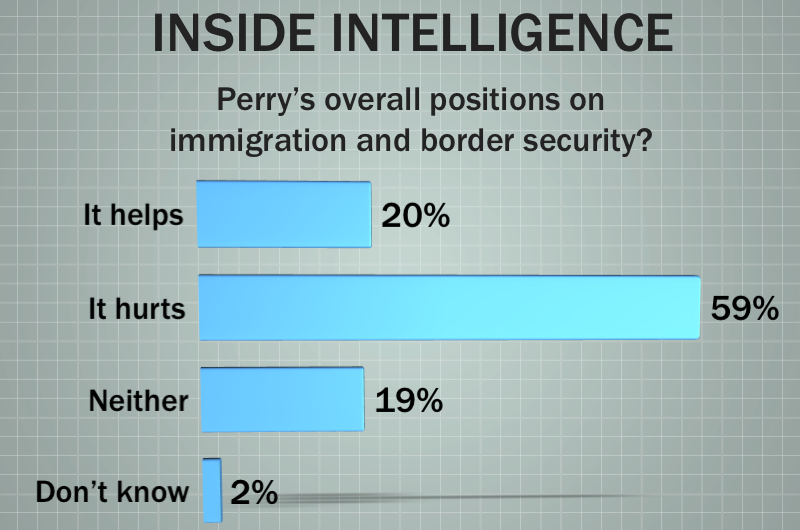
Partisan changes in the Legislature are on ice for now. The more important game to watch is for which kinds of Republicans and Democrats are coming to Austin every two years.
It's not as easy to measure. You can look at voting stats, like our Texas Weekly Index, or Dana Chiodo's numbers, or the indexes put together by the political parties, and get a pretty good feel for whether a particular district is going to elect a Democrat or a Republican to the House, to the Senate, or to Congress.
It's harder to chart what have become the most important changes. If the new redistricting maps hold, Republicans will maintain roughly a two-to-one advantage over Democrats in legislative jobs. The parties have drawn their maps to keep as many districts as possible from being competitive in general elections. That moves any fights to the primaries, and probably means the most Democratic of the Democrats and the most Republican of the Republicans will be winning elections for the next decade.
It's reasonable to assume that the Republican contingent in the Legislature and in the congressional delegation will be in the majority, and that the contingent will become more and more conservative.
Take a look at the Texas Senate and a possible scenario that replaces three or four Republicans and a Democrat with four or five Republicans.
Sen. Wendy Davis, D-Fort Worth, is fighting to revise the maps in Tarrant County. If she's not successful, she faces reelection in a district that has more Republican voters than Democrats. Mike Jackson, R-La Porte, is running for Congress. Republicans Florence Shapiro of Plano and Steve Ogden of Bryan say they won't seek reelection next year (stories here and here).
The only declared challenger to Davis is Rep. Kelly Hancock, R-North Richland Hills. Larry Taylor, R-Friendswood, the head of the House Republican Caucus, is running to replace Jackson. Charles Schwertner, R-Georgetown, is running for Ogden's spot. Ken Paxton, R-McKinney, who fell short in a challenge to House Speaker Joe Straus earlier this year, is running for Shapiro's seat against Scott O'Grady, a former fighter pilot to came to fame when he was shot down over Bosnia and rescued days later by the Marines.
Just for conversation, throw the race between Sen. Chris Harris, R-Arlington, and Rep. Rodney Anderson, R-Grand Prairie, into the mix.
If they survive the elections, those five new members could move the Senate's Republican Caucus a notch or two or three to the right. It could impact any number of issues, starting with the race to replace Lt. Gov. David Dewhurst with a senator, should he move up to the U.S. Senate or to the governor's office.
Some Republicans, both inside and outside the Senate, want the GOP caucus to choose the next Lite Guv without consulting the Senate's Democrats. The five state reps peeking through the Senate fence would, as a group, be more conservative than the gang they hope to replace. On top of that, they'd be freshmen who aren't steeped in the folk lore and traditions of the Senate. They're from the House. There are partisan fights in both chambers; the difference is that senators say they feel bad about it. The Housies, whose boot camp consisted of a long series of brutal political fights for the speakership, would actually come into the Senate with more experience at a rumble over who ought to be in charge.
Shapiro came to the Senate in 1993, knocking off Sen. Ted Lyon, D-Mesquite, after redistricting left him with a Republican district and a Plano mayor who wanted his job. Ogden got to the House two years earlier and came to the Senate in 1997. Their hair is gray — his is actually white — and they are two of the state's most accomplished legislators, having chaired important committees, won and lost big and important fights. Jackson came to the Legislature in 1989. Poof — there goes six decades of experience. More to the point, if you're on the side of those who want to change some of the Senate's traditions and rules, it opens an opportunity.









